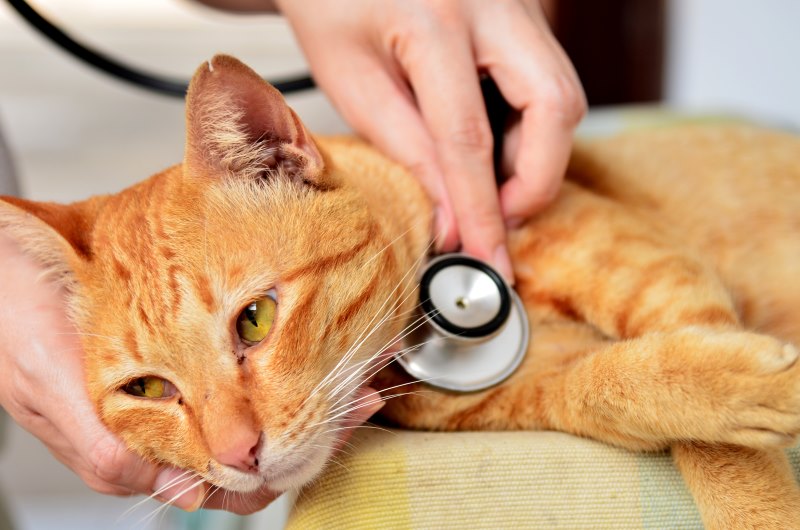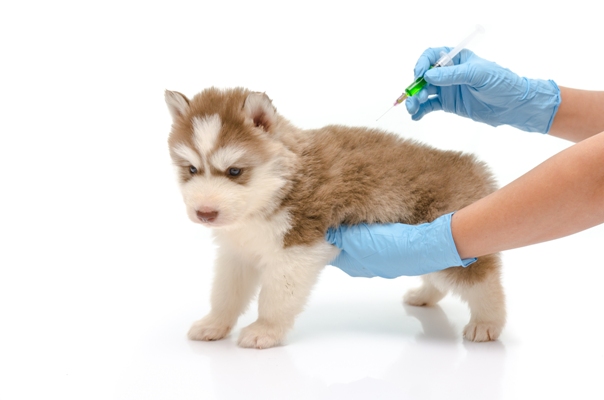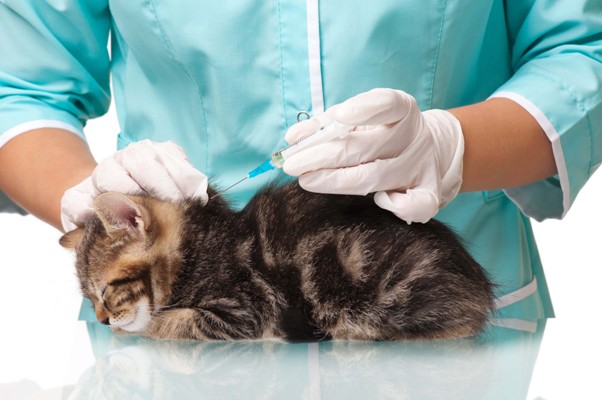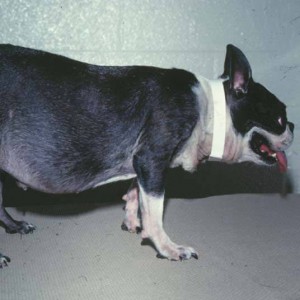Distemper in dogs and cats

What is distemper in dogs and cats?
Canine distemper is a highly contagious and often fatal disease that can affect dogs. It is an airborne virus that is also spread through contact with items like clothing, dog brushes, shared food, shared water bowls or other utensils. It can also be passed on via fresh urine or blood. There is no known cure for distemper and young puppies that have not been vaccinated or older dogs who are unvaccinated are more susceptible to contracting the disease.
 Feline distemper is also referred to as Feline Panleukopenia virus (FPV). It is a highly contagious and life threatening disease which affects the intestinal tract and bone marrow and leads to an anaemic condition that leaves the cat susceptible to other illnesses. Feline distemper is also spread through infected blood, faeces, urine or by fleas that are passed on from infected cats. It can also be spread through water bowls, bedding and food bowls. Feline distemper can also be spread by humans handling infected cats.
Feline distemper is also referred to as Feline Panleukopenia virus (FPV). It is a highly contagious and life threatening disease which affects the intestinal tract and bone marrow and leads to an anaemic condition that leaves the cat susceptible to other illnesses. Feline distemper is also spread through infected blood, faeces, urine or by fleas that are passed on from infected cats. It can also be spread through water bowls, bedding and food bowls. Feline distemper can also be spread by humans handling infected cats.
There is no risk of cross contamination between dogs and cats in relation to the different strains of distemper, but animals and humans can carry the disease on their bodies and spread it that way.
Symptoms of distemper in dogs and cats
Symptoms in dogs include a high fever, lack of appetite and lack of energy. The dog may lose weight and become dehydrated. The disease also affects the respiratory and gastrointestinal organs, resulting in diarrhoea and vomiting. The dog may also be coughing and sneezing with mucous coming from their nose and eyes.
The later stages of this disease affects the dog’s nervous system, resulting in convulsions and seizures.
Symptoms in cats include vomiting, dehydration, weight loss, high fever and diarrhoea.
Diagnosis of distemper in dogs and cats
Canine distemper may be diagnosed with the following tests:
- Biochemical tests and urine analysis may reveal a reduced number of lymphocytes, the white blood cells that function in the immune system in the initial stages of the disease (lymphopenia).
- A serology test may identify positive antibodies, but this test cannot distinguish between vaccination antibodies and an exposure to a virulent virus.
- Viral antigens may be detected in urine sediment or vaginal imprints.
- Haired skin, nasal mucous, and the footpad epithelium may be tested for antibodies as well.
- Radiographs can only be used to determine whether an infected animal has contracted pneumonia.
- Computed tomography (CT) and magnetic resonance imaging (MRI) scans can be used to examine the brain for any lesions that may have developed.
There are a number of ways that a vet may diagnose feline distemper including:
- Physical examination
- Blood tests
- Urine analysis
- Faecal sampling
Treatment of distemper in dogs and cats
There are currently no viral drugs that can cure canine distemper and sadly, even with symptomatic treatment, the condition may be fatal. Symptoms of distemper may be treated with medication and antibiotics while dehydration can be treated by the introduction of fluids. The earlier this disease is medically managed the more effective the treatment will be. Sadly, once this disease impacts the nervous system there is no treatment at all.

Similarly, cats can be treated to ensure that their symptoms are alleviated. This includes fluids for dehydration, medications to stop vomiting and antibiotics to help protect the cat from developing bacterial infections.
Prevalence and prevention
Distemper vaccinations have been available since the 1950s and today the illness has been somewhat contained due to the vaccination programs.
Incidence of canine distemper is highest in dogs that have not been vaccinated against the disease. Young and unvaccinated puppies and those that are not fully vaccinated are vulnerable. Older dogs that have not been vaccinated can also catch distemper if they come into contact with another dog with the disease or through the environment.
Cats are also vulnerable to infection if they have not been vaccinated against FPV.

Distemper vaccinations for dogs
- The distemper vaccination is usually given to dogs from when they are puppies and then every one to three years.
- Find out more on Dog and Puppy Vaccination schedules and dog vaccination costs to help prevent Canine Distemper.
Distemper vaccinations for cats
- Vaccinations against FPV in cats are essential. Kittens should be vaccinated for distemper as per veterinary advice and then every one to three years after that.
- Find out more on Cat and Kitten Vaccination schedules and cat vaccination costs to help prevent Feline Distemper.

Vaccinations are essential to protect your pet from Distemper. Our Routine Care (non-insurance benefit) provides a contribution towards everyday items such as vaccinations and health checks. Get an online quote now.
Interesting facts
- Canine distemper is unaffected by weather conditions, which means it can affect animals all year round.
- Prior to canine parvovirus,canine distemper was the most feared disease for dogs.
- If a dog is infected and survives distemper, its owners should wait at least one month before introducing any new pets to the household.
- Other animals like foxes, wolves and ferrets are also affected by this disease.
- Distemper has been recognised as a growing threat to Siberian (Amur) tigers.
Bow Wow Meow Pet Insurance can help protect you and your pet should an unexpected trip to your vet occur.
- Find out more about our dog insurance options
- Find out more about our cat insurance options
- Get an instant online pet insurance quote
Bow Wow Meow is proud to have been awarded winner of Canstar’s ‘Most Satisfied Customers’ Award in the Pet Insurance category for both 2024 and 2025!
Bow Wow Meow is proud to have been chosen as Product Review’s Pet Insurance Award Winner every year from 2018 to 2025! This is based on 2,995 independent customer reviews (as at 21/01/2025), with an overall rating of 4.3*
Google Review rating = 4.5* (based on 968 reviews)
Trust Pilot rating = 4.6* (based on 531 reviews)
Bow Wow Meow is proud to have been chosen as Product Review’s Pet Insurance Award Winner every year from 2018 to 2025! This is based on 2,995 independent customer reviews (as at 21/01/2025), with an overall rating of 4.3*
Google Review rating = 4.5* (based on 968 reviews)
Trust Pilot rating = 4.6* (based on 531 reviews)
Bow Wow Meow has been chosen as a winner in the Finder Pet Insurance Awards 2024. Finder’s panel of experts analysed over 140 quotes to award our Ultimate Care Plan the winner of the “Pet Insurance – Value” category.










